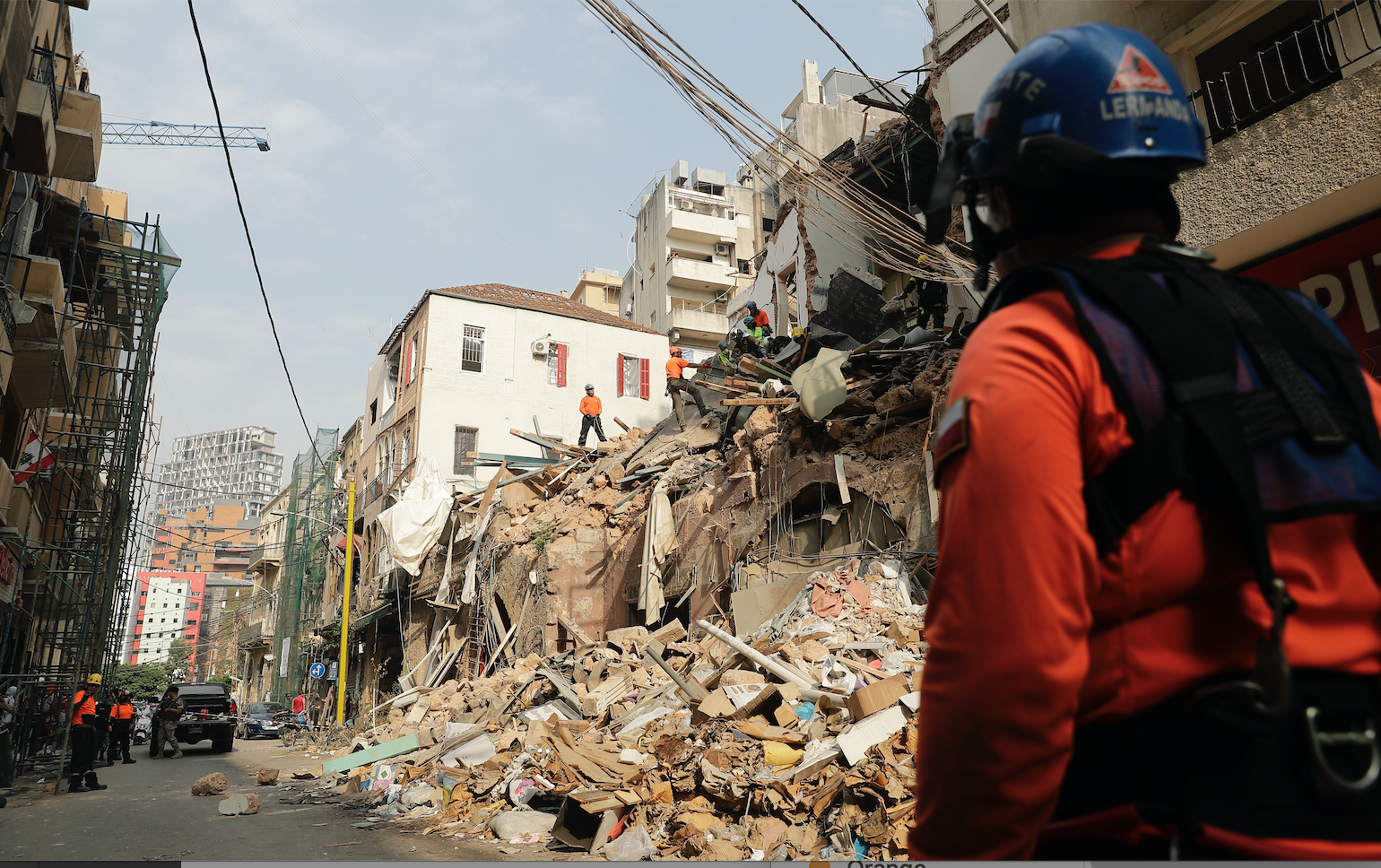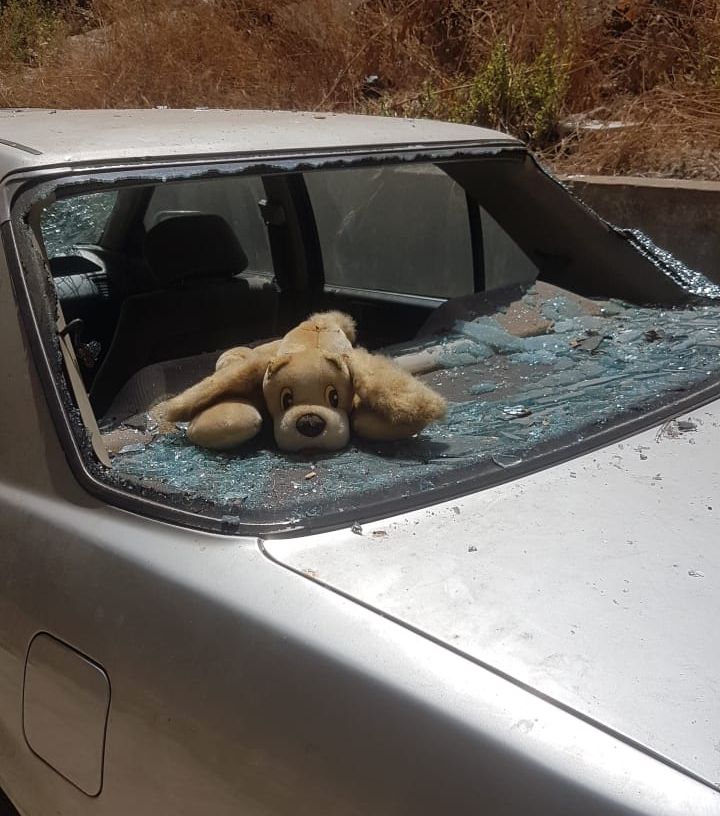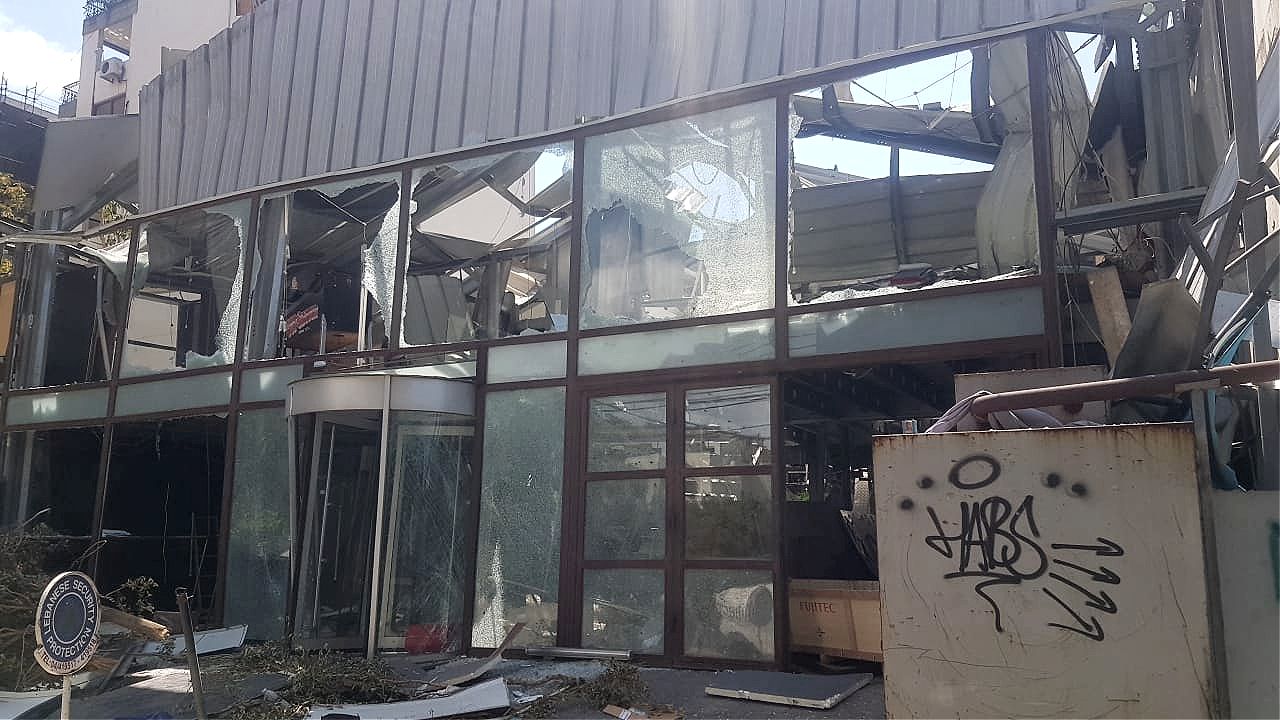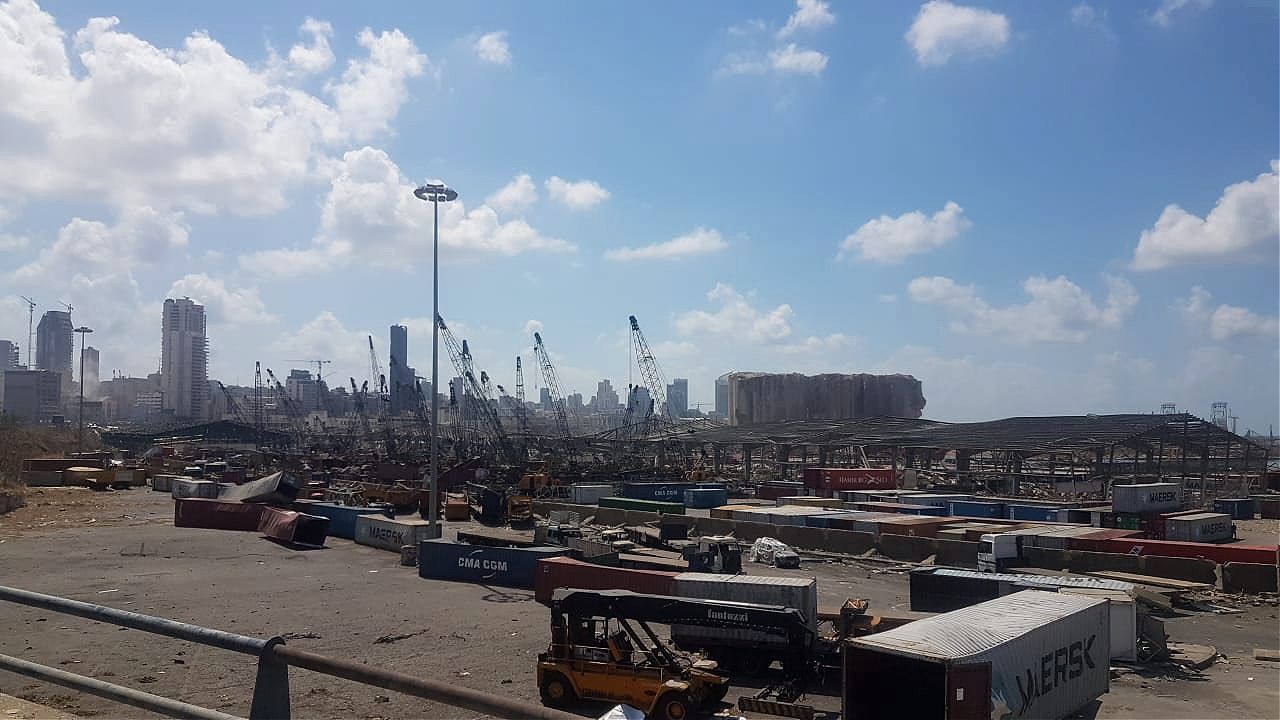The ground shook Chagid Bacha. The stained-glass windows of a church in Jounieh, a Christian city on the Lebanese coast that lies 17 kilometers from Beirut, where the six o’clock mass began, shook. The parishioners looked at each other in confusion. “Was it an earthquake?” someone asked in Arabic. "A bomb?" speculated another. Chagid made way for his great-uncle Mikhail and his mother, Ilham, to get in the line at the main hall to exit the temple. Cell phones began to ring. "Are you okay?" asked his sister through the family’s group chat on WhatsApp. "There was an explosion in Beirut."
They got into the car and, before setting off, Chagid looked at his cell phone. His friends in Caracas were asking if he was alive. He opened the last video he received on WhatsApp and saw how a huge mushroom cloud of flames, dust, and noise covered the landscape that was displayed on the screen.
They returned home and turned on the television. The news reported an explosion in the port of Beirut at 6:08pm in the afternoon, that Tuesday, August 4, 2020. No terrorist organization had claimed responsibility for an attack and the Lebanese government remained silent. Chagid's Lebanese friends wondered from the chats if it had been an Israeli attack on Lebanon.
Chagid watched videos of the explosion until the early hours, taken from streets, windows, hotels, apartments, and security cameras. He shared a Facebook post of an old woman playing “It Is Only A See You Later” on the piano in the living room of an apartment devastated by the explosion. The next day, Chagid woke up early, without the appetite for breakfast. Before leaving for Beirut, he read a headline that asked if the air was polluted by toxic substances. Although he feared catching something worse than the coronavirus, six months after the pandemic broke out, Chagid needed to see for himself what had happened in the city.
That Wednesday, the Lebanese prime minister declared a state of emergency in Beirut for two weeks and said that the port was storing 2,750 tons of ammonium nitrate, a salt used as a fertilizer. It is also used to make explosives. The compound had been there for seven years, after a Moldovan-flagged Georgian ship named Rhosus was held in Beirut port because it owed up to $100,000 in accumulated taxes and because there were security issues. The ammonium nitrate belonged to a company that manufactured explosives in Mozambique. The Lebanese government was aware that this highly volatile shipment was in the port of Beirut.
When Chagid discovered that much of the harbor was missing, he wiped away his tears to get a good look at the road. He drove into the city, parked where he could, and the scene left him speechless: bloodied people wandered; a woman struggled to drag two suitcases over the debris; a brown teddy bear had landed on the roof of a smashed car. The rafters of the buildings folded as if they were accordions and the hanging remains of balconies looked as if they were about to fall. It smelled like the world had been burned. A thick haze blotted out the sunlight. At the end of a street that was covered in ash, he spotted a group helping to transport a wounded man. It was then when he knew what he had to do.
Chagid is 27-years-old and was born in Caracas. He belongs to the third generation of the Bacha Raffoul family, a family of Lebanese migrants who made their lives in Venezuela. Great-uncle Mikhail Raffoul emigrated in 1956, when he was 19 years old and had limited prospects of finding a job amid the disputes between Christians and Muslims in Lebanon.
Mikhail stole the passport from his older brother, Said, and got on a boat without knowing where he was going. During the thirty days that the trip took to arrive at the port of La Guaira, almost 40 kilometers from Caracas, Mikhail scrubbed the ship's floors to pay for his food. In Venezuela, Marcos Pérez Jiménez ruled, a military man who repressed the freedoms of Venezuelans, but welcomed foreign labor seeking work.
Without speaking a word of Spanish, Mikhail managed to rent a room in San Agustín del Sur and began selling clothes and shoes door-to-door. He repeated the words he heard on the street and bought the newspaper every day to learn how to read. In the late sixties, he returned to Lebanon as a Spanish-speaker; a prosperous merchant who sold clothes and shoes on Lecuna Avenue, southwest of a peaceful and warm Caracas all year round. Mikhail got married in Lebanon and returned to Venezuela to live with his wife. They had two children. Fifteen years later the couple divorced, business declined, and Mikhail felt lost.
To continue reading in Spanish, click here.






